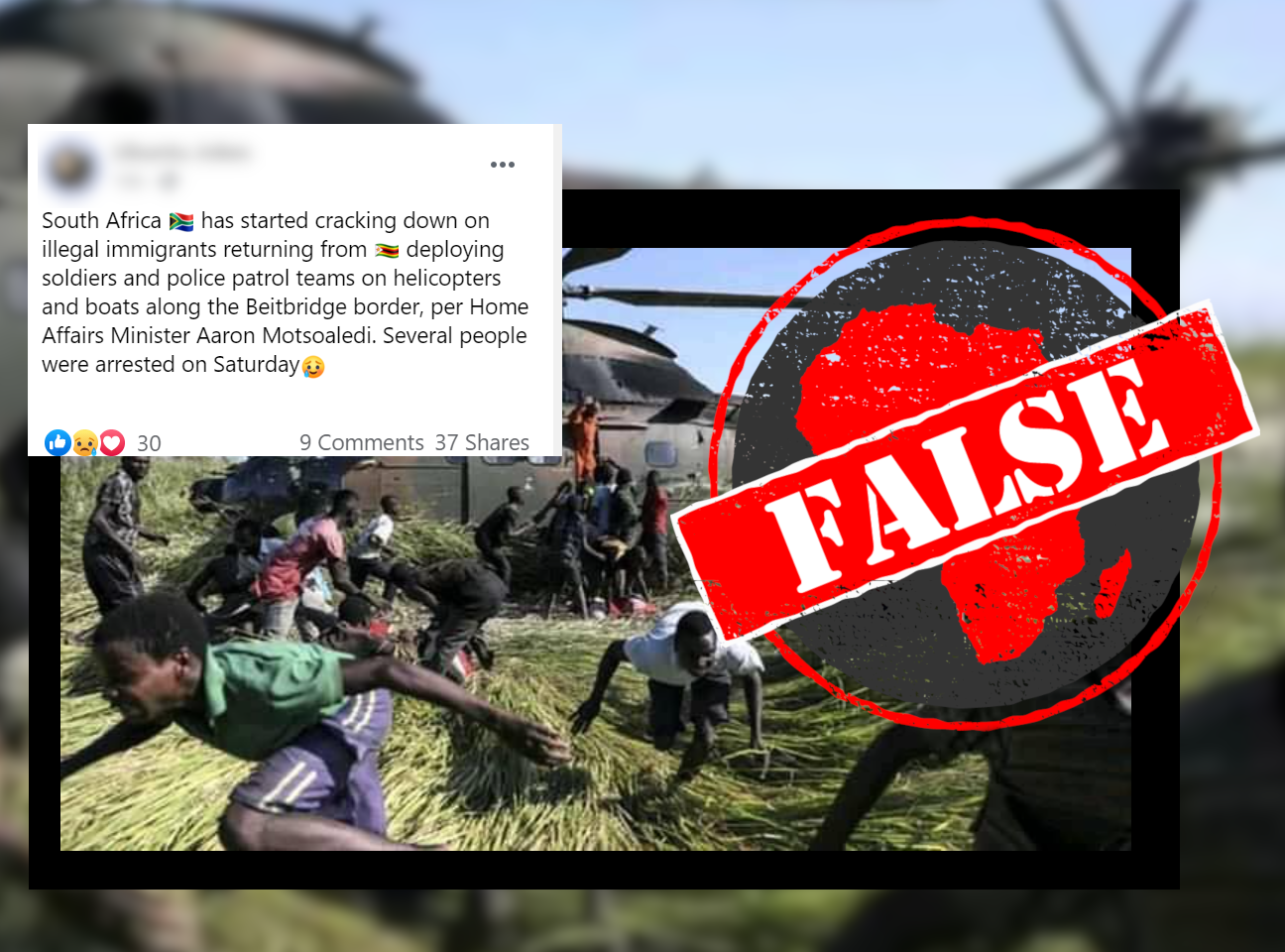A photo is circulating on Facebook with the claim it shows “illegal immigrants” being arrested at the Beitbridge border post between South Africa and Zimbabwe in January 2021.
In the photo, people appear to be running away from a just-landed military helicopter.
“South Africa has started cracking down on illegal immigrants returning from [Zimbabwe]”, the photo’s caption reads. “Several people were arrested on Saturday.”
On 3 January South Africa’s department of home affairs said people were trying to enter the country illegally through the Beitbridge border post, and the department was making hundreds of arrests a day.
But the photo does not show this.

A reverse image search reveals the photo was first shared online in May 2019.
It shows people who have collected food aid from a South African National Defence Force (SANDF) helicopter, in the aftermath of cyclone Idai in Nhamatanda village, Mozambique, in March 2019.
While the SANDF has been deployed to monitor the situation along South Africa’s border with Zimbabwe, the photo does not show “illegal immigrants” from Zimbabwe being arrested in January 2021.
In the photo, people appear to be running away from a just-landed military helicopter.
“South Africa has started cracking down on illegal immigrants returning from [Zimbabwe]”, the photo’s caption reads. “Several people were arrested on Saturday.”
On 3 January South Africa’s department of home affairs said people were trying to enter the country illegally through the Beitbridge border post, and the department was making hundreds of arrests a day.
But the photo does not show this.

Food aid after cyclone
A reverse image search reveals the photo was first shared online in May 2019.
It shows people who have collected food aid from a South African National Defence Force (SANDF) helicopter, in the aftermath of cyclone Idai in Nhamatanda village, Mozambique, in March 2019.
While the SANDF has been deployed to monitor the situation along South Africa’s border with Zimbabwe, the photo does not show “illegal immigrants” from Zimbabwe being arrested in January 2021.
Republish our content for free
For publishers: what to do if your post is rated false
A fact-checker has rated your Facebook or Instagram post as “false”, “altered”, “partly false” or “missing context”. This could have serious consequences. What do you do?
Click on our guide for the steps you should follow.
Publishers guideAfrica Check teams up with Facebook
Africa Check is a partner in Meta's third-party fact-checking programme to help stop the spread of false information on social media.
The content we rate as “false” will be downgraded on Facebook and Instagram. This means fewer people will see it.
You can also help identify false information on Facebook. This guide explains how.



Add new comment